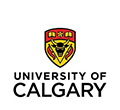In addition to the Faculty of Graduate Studies admission requirements, Graduate Programs in Education requires:
a) A course or thesis-based Master’s degree in an appropriate field.
b) A minimum grade point average of 3.50 on a four-point scale in a Master’s degree program.
c) A written statement indicating the applicant’s reasons for wishing to pursue a graduate program.
d) Candidates will be expected to have, or obtain, relevant practical experience in their area of specialization.
e) For applicants required to prove proficiency in English, a TOEFL score of 580 (written test), 93 (Internet-based test), a MELAB score of 82 or an IELTS score of 7.0.
f) Two reference letters.
Admission Portfolio
Applicants to the Doctor of Education program are encouraged to submit an Admission Portfolio containing examples of their work. The purpose of the Admission Portfolio is to give applicants the opportunity to provide additional documentation that demonstrates their suitability and qualification for doctoral studies. The Admission Portfolio is particularly relevant for program applicants who do not hold a thesis-based Master’s degree.
The Doctoral Admission Portfolio may contain the following:
a) Thesis (if applicable).
b) Reports.
c) Research grants or scholarships.
d) Articles.
e) Curriculum documents.
f) Non-print materials, e.g., multimedia.
g) Evidence of relevant prior learning (see below).
h) Personal statement documenting research and professional skills and interests.
The Doctoral Admission Portfolios must include a Table of Contents and an Executive Summary that outlines the contents of the Portfolio.
Relevant Prior Learning Considerations
In exceptional circumstances, individuals who do not meet formal academic requirements but who have significant life achievements may be considered for admission to the program. The candidates must provide Graduate Programs in Education with evidence demonstrating a potential to undertake successfully the proposed program of studies. Such candidates are advised to make early contact with Graduate Programs in Education, and supply additional supporting documents as part of their application package, such as:
a) Evidence of personal continuing education/training.
b) Results in these continuing education efforts.
c) Experience in a field related to the aspired degree.
d) Evidence of successful management of people, resources, finances, situations.
e) Increasing or varying responsible positions in organizations related to the aspired degree.
f) Work-related products, e.g. reports, programs of learning or training, handbooks, videos, manuals, workshops, seminars.
g) Evidence of personal growth in knowledge, understanding, management skills, and intellectual resources.
h) Evidence of innovation.
i) Evidence of leadership, co-ordination.
 Program Descriptions
Program Descriptions  Education Graduate Programs
Education Graduate Programs  Educational Research (EDER)
Educational Research (EDER)  Doctor of Education (EdD)
Doctor of Education (EdD)
